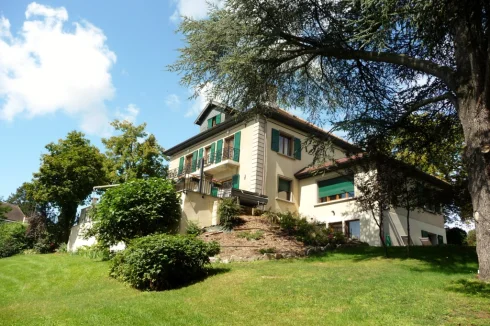Coach Travel in France
Tuesday 04 November 2014
The privileged status of the rail network in France has been to the detriment of national coach travel, but that may be all about to change.
Intercity coach travel in France is a very marginal transport service, with only 110,000, (0.0005%!), of long-distance passengers who travel by coach, compared with around 4% in the United Kingdom.
In part, the paucity of coach travel has been due to the extensive rail, plane and motorway networks in France, which offer easy travel across most parts of the country.
However, as the French Competition Authority (l'Autorité de la concurrence) pointed out in a report published earlier this year, the major reason for the lack of inter-city coach travel has been the regulatory framework in existence.
It is a framework specifically written to benefit of SNCF, the French rail operator, which has effectively locked out coach operators from entering the market.
Historically close ties exist between the local councils and the French rail network, with the councils providing substantial subsidies towards rail services.
Add to the mix the power and influence of the cheminots, and it has meant that until recently few coach lines had been established.
Cross-Border Framework
It has only been a result of the European Regulation 1073/2009 that matters have begun to change.
Under the terms of this regulation, coach operators within Europe are permitted to transport passengers between two points within a country (called 'cabotage'), provided it was only part of international journey within the European Union.
Thus, a coach leaving from London for Barcelona could let down or pick up passengers in Lille and Paris, provided it did not constitute the principal activity of the service.
When this regulation was transposed into French law in 2011 it was interpreted in the strictest sense, with a double 50% rule that applies.
Under this rule, between any two stops on French soil the number of passengers travelling only within France must be less than 50% of the total number of passengers between these two stops, and the annual turnover of the service from all domestic routes must be less than 50 % of revenues from transport services performed within the national territory. In addition, there cannot be more than one stop within any region.
Moreover, in order to even obtain this right, operators are required to participate in a complex, costly and time-consuming application process to the French Ministry of Transport, that gives no guarantee their application will be approved.
One of the main grounds on which it may be refused is that it threatened the 'economic equilibrium' of the existing public service ("si leur existence compromet l'équilibre économique d'un contrat de service public de transport de personnes"). In other words, the application could be refused if it was a potential threat to a competing rail service.
Even if no competition issue existed, there still remains for the operators the need to obtain access to a station for embarking and disembarking passengers, an exercise that is not without difficulty due to the local council and SNCF control of most of the bus and rail stations that might be used for this purpose.
Inter-Regional Services
Nevertheless, even under the constraints of these regulations, over the past three years some significant progress has been made.
In September 2011, with the mixed blessing of the local councils, the French government authorised the creation of inter-city coach routes through the auspices of the 'Eurolines' brand, which in France operates as a public-private joint venture.
The group now operates to around 60 destinations within France, but given the close involvement of the public authorities in this operation it is not surprising to find that many potentially popular and lucrative routes do not appear on the timetable for the service.
Thus, although you can go from Toulouse to Bayonne, Lyon, Orthez, Pau, Poitiers, Rennes, Tours and Valence on one of their coaches, there is no Toulouse-Paris or Toulouse-Bordeaux.
Separately, SNCF have themselves begun to see the potential of the coach market, so established their own coach travel subsidiary, called 'iDBUS', which they launched in July 2012.
The service runs inter-regional routes within France out of Aix-en-Provence, Lille, Lyon, Marseille, Nice, Paris, and Toulouse, as well as a number of cross-border lines within Europe from some of these cities.
In a strange twist of irony, the iDBUS Chief Executive recently commented on the difficulties the business was incurring as a result of the double 50% rule imposed by the existing regulatory framework, a rule set up precisely to protect SNCF! Maria Harti, directrice générale of iDBUS, stated "Dans les gares routières, nous devons refuser aux clients de leur vendre un billet et, ensuite, ils voient le bus partir avec des places libres."
The newest entrant into the market is 'Stagecoach', competitor in the UK to the main operator National Express. This summer Stagecoach introduced a service between London, Paris, Toulouse and Barcelona through their low-cost megabus.com network, with prices that look very attractive. The service has other stops along the route in France for destinations elsewhere within Europe.
Projet Loi Macron
All of this is solid progress, but a lot more may well emerge in the next year or so with proposals recently announced by Emmanuel Macron, the French Finance Minister, to undertake a more substantial liberalisation of coach travel in France.
Although the details have yet to emerge, the announcement suggested that the paper chase authorisation process would be substantially reduced, so that some routes could be started without the need for any formal approval.
The Competition Authority itself recommended abolishing the approval process for all lines over 200 kilometres distance, and this may well be the approach finally adopted by the government.
However, as with any proposal for change in France, there is always a strong lobby of opposition, which has already emerged from the regional councils who have signalled to the government that they will be "vigilant in ensuring that the government's choices in favour of the liberalisation of coach services cannot be at the expense of efforts on behalf of regional rail travel for years."
There is also a similar level of circumspection amongst the transport user groups, notably FNAU (Fédération Nationale des Associations d'Usagers des Transports), who, whilst they support the development of coach routes not properly served by rail, fear that unfettered competition will menace the future of some lines. So they stress that coach services should be "complementary, not competitive."
Next Article: Headache Over Medicines in France
Thank you for showing an interest in our News section.
Our News section is no longer being published although our catalogue of articles remains in place.
If you found our News useful, please have a look at France Insider, our subscription based News service with in-depth analysis, or our authoritative Guides to France.
If you require advice and assistance with the purchase of French property and moving to France, then take a look at the France Insider Property Clinic.





